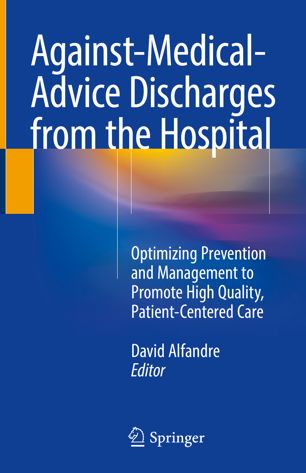

Most ebook files are in PDF format, so you can easily read them using various software such as Foxit Reader or directly on the Google Chrome browser.
Some ebook files are released by publishers in other formats such as .awz, .mobi, .epub, .fb2, etc. You may need to install specific software to read these formats on mobile/PC, such as Calibre.
Please read the tutorial at this link: https://ebookbell.com/faq
We offer FREE conversion to the popular formats you request; however, this may take some time. Therefore, right after payment, please email us, and we will try to provide the service as quickly as possible.
For some exceptional file formats or broken links (if any), please refrain from opening any disputes. Instead, email us first, and we will try to assist within a maximum of 6 hours.
EbookBell Team

5.0
88 reviewsThis first-of-its-kind text provides a multidisciplinary overview of a significant problem in hospital-based healthcare: patients who decline inpatient medical care and leave the hospital against medical advice (AMA). Compared to standard hospital discharges, AMA discharges are associated with worse health and health services outcomes. Patients discharged AMA have been found to have disproportionately higher rates of substance use, psychiatric illness, and report stigmatization and reduced access to care. By providing a far reaching examination of AMA discharges for a wide academic and clinical audience, the book serves as a reference for clinical care, research, and the development of professional guidelines and institutional policy. The book provides both a broad overview of AMA discharges with chapters on the epidemiology, ethical and legal aspects, as well as social science perspectives. For clinicians in the disciplines of hospital medicine, pediatrics, emergency medicine, nursing, and psychiatry, the book also provides a patient-centered analysis of the problem, case-based discussions, and a discussion of best practices. This comprehensive review of AMA discharges and health care quality will interest physicians and other health care professionals, social workers, hospital administrators, quality and risk managers, clinician-educators, and health services researchers.